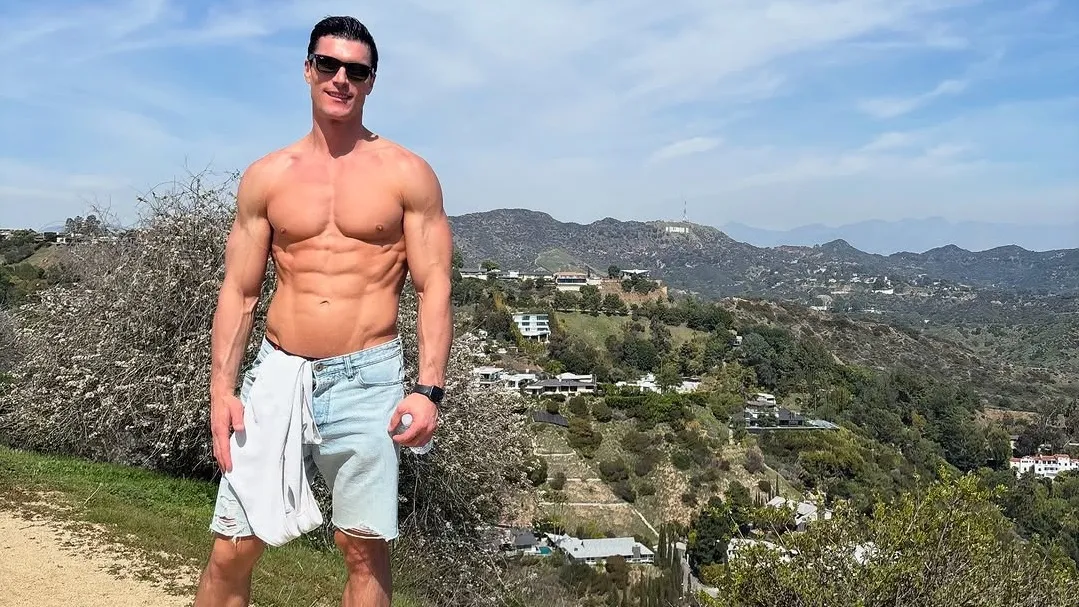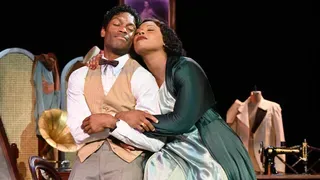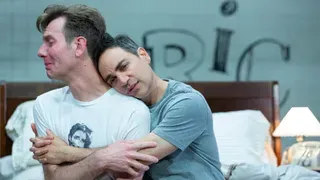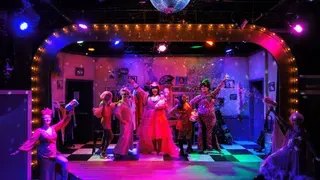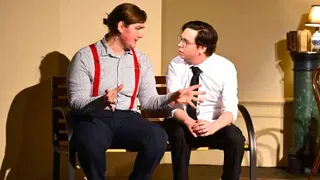August 19, 2009
Tony Bennett
Brian Callaghan READ TIME: 3 MIN.
Frank Sinatra, Nat King Cole, Rosemary Clooney and Dean Martin have been dead for years, but fortunately Tony Bennett, the last of the lounge singers, is alive, well and still performing.
Bennett came to the Boston area for his annual visit on Saturday night for a sold-out show at the South Shore Music Circus. The intimate open-air tent was a great venue on a warm New England evening.
The 83-year-old put on a wonderful show of nearly two dozen songs - most classics from the 1930s, 40s and 50s - that delighted the Cohasset crowd. To this critic's amazement, he also appeared to do so without a tele-prompter, an all-too-common aid these days used by singers half Bennett's age.
Dressed in a light yellow blazer and navy blue pants, the singer and his talented four-piece band played songs familiar to many. With his dimpled cheeks, smiling eyes and ever present grin, Bennett was the impeccable showman, even doing the occasional dance and spin around the stage.
His voice was strong and clear, and rather than merely talking his way through songs as Sinatra did in his later years, Bennett frequently demonstrated he can still sing.
His take on Kander and Ebb's "Maybe This Time," was an extended treatment that demonstrated he could still deliver the goods on a big, dramatic tune. "For Once in My Life," "Sing You Sinners" and "It Don't Mean a Thing if It Ain't Got that Swing" were upbeat versions of standards. While his "Boulevard of Broken Dreams" was the original version of the song, not the rendition made famous by Green Day a few years ago.
Never one to venture too much into the world of post-Beatles pop music, Bennett was happy to stick with the the Great American Songbook that have served him so well over the years. The audience was treated to songs by the Gershwins, Cole Porter, Cy Coleman, Kurt Weill and even Hank Williams, whose "Cold, Cold Heart" was one of Bennett's first hits.
The singer's signature tune, the 1962 hit, "I Left My Heart in San Francisco," turned up mid-set where it was well-received but failed to have the impact it might has as a set closer. Then again, with so many songs to choose from, it was probably wise for Bennett to get the chestnut out of the way early.
The jazz singer chatted frequently with the audience throughout the show, entertaining them with stories about his life and career.
One anecdote explained how he and Rosemary Clooney were both contestants on a TV talent show back in the 1950s. "We were the original American Idols!" While Clooney won, the gig jump-started Bennett's career.
Thanks to that exposure he was asked to open for Pearl Bailey at a club in Greenwich Village, where he was seen by Bob Hope. It was Hope who suggested the singer change his name from Anthony Dominick Benedetto to Tony Bennett. "Bob Hope gave me my name!"
During the course of the evening all four of the talented band members: drummer Harold Jones, guitarist Gray Sargent, pianist Lee Musiker and bass player Marshall Wood, were given several opportunities to perform solos highlighting their substantial skill. They were an impressive combo who complemented Bennett's style flawlessly.
The only disappointing part of the evening was that Bennett's daughter, Antonia, who performed about a half dozen numbers as the opening act, didn't join him for a duet or two. It would have been a welcome addition to an already perfect night.
